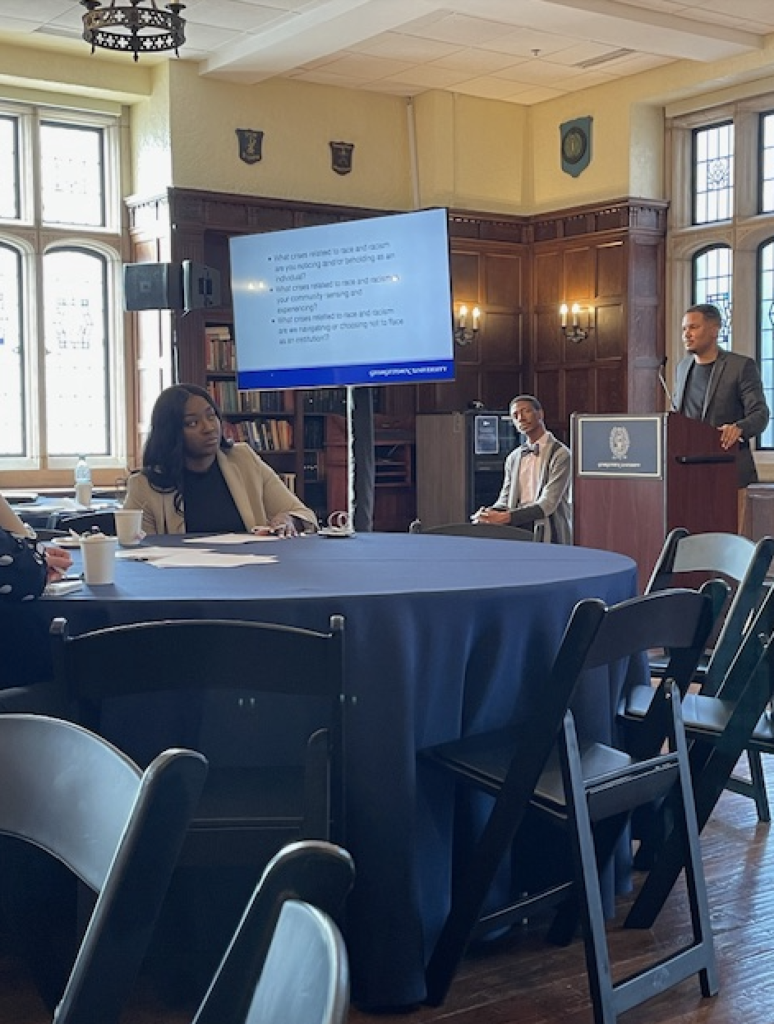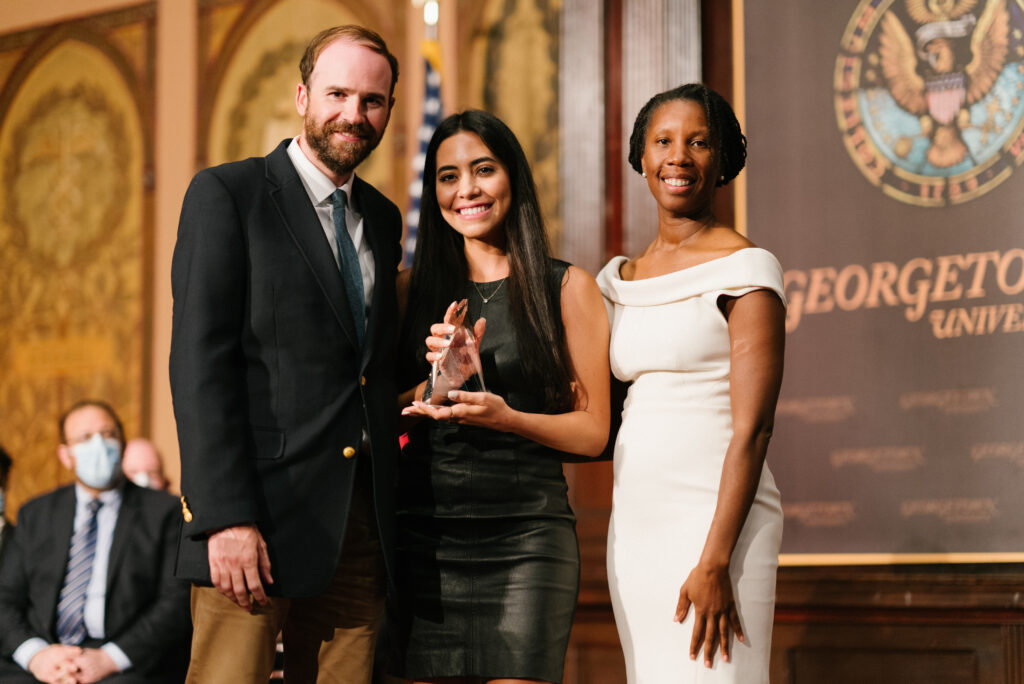Every year, Mission in Motion reflects on Georgetown’s selected speech of Dr. Martin Luther King Jr. and invites some considerations for how its content and themes might be incorporated into courses and other activities at SCS. The 2025 Teach the Speech selection is a 1967 interview given by Dr. King with Sander Vanocur at the Ebenezer Baptist Church in Atlanta, Georgia. You may also view the full transcript. What is especially remarkable about this text is that the interview occurs 11 months before Dr. King’s assassination and the conversation, unlike a traditional speech, reveals subtle insights into Dr. King’s reflective assessment of the Civil Rights Movement and his own role in it as he nears his death.
This annual event of disseminating an MLK Jr. speech to the entire Georgetown community presents manifold possibilities about how to incorporate the ideas of the speech into learning activities. Such an effort reinforces the spirit of the Ignatian Pedagogical Paradigm, which invites instructors to discern how to animate the deeper meanings of knowledge areas for the sake of encouraging students to make more generous, loving, and just choices in their lives and professional careers. Regardless of the particular discipline, each field of study and practice at Georgetown can discover ways to integrate the speech in a course or other learning engagement to inspire plans of action for justice in the spirit of Dr. King. Instructors at Georgetown are encouraged to utilize this set of teaching resources to support whatever plans they develop.
As an urban planner and an educator in several different SCS programs, I think there are several ways that this speech can be meaningfully incorporated into professional studies coursework. First, the entire conversation takes place within the context of Dr. King’s own personal reflections about the effectiveness of the Civil Rights Movement. He is modeling a spirit of reflective evaluation, the final stage of the Ignatian Pedagogical Paradigm, and reinforcing the importance of continuous reflection. Whether it is a social change movement or a particular strategic planning process, reflective professionals should regularly reflect on the effectiveness of their work and its larger impact. What is missing? What barriers are impeding success? What additional data do I need to improve my practices and contributions to a larger effort? These reflection questions seem to be animating Dr. King’s perspectives in the interview.
Second, Dr. King’s speech makes an important distinction between obvious and more subtle social challenges. He describes how the manifestations of racism in obviously racist laws and forms of racialized violence are more evident to the public. But Dr. King cautions that other areas of social, political, and economic life, like the state of housing affordability, present less visible racism but nonetheless exist within structures in which race has a determining impact on life outcomes. These more subtle forms of racism, so often reproduced spatially, are more difficult to inform the public about and often less supported than more manifestly racist acts and intentions. Instructors might consider how this dynamic is playing out in one’s respective industry. Where are the manifestations of racism products of larger social, economic, and political structures that need to be addressed with more comprehensive, integrated, and systematic ways? Housing, employment, and education are all areas of life where these dynamics continue to play out in the U.S. and have an effect on all of the industries represented in SCS programs.
Third, the speech presents opportunities to challenge students to consider how major macro forces are impacting the particular subject matter of their professional industries. For instance, Dr. King describes how the Vietnam War made it more difficult to focus the public’s attention on the ongoing Civil Rights Movement. Instructors might invite their students to conduct similar analysis. What larger dynamics in the world are positively and negatively impacting the state of your professional industry? What are strategies for addressing these macro forces in ways that ultimately improve the effectiveness of your particular work in a chosen field of study?
I hope our community directly engages with Teach Dr. King’s Speech and I encourage you to attend an event in Copley Formal Lounge on the Hilltop campus and online from 10:00 a.m. – 3:00 p.m. ET on Friday, January 31.


